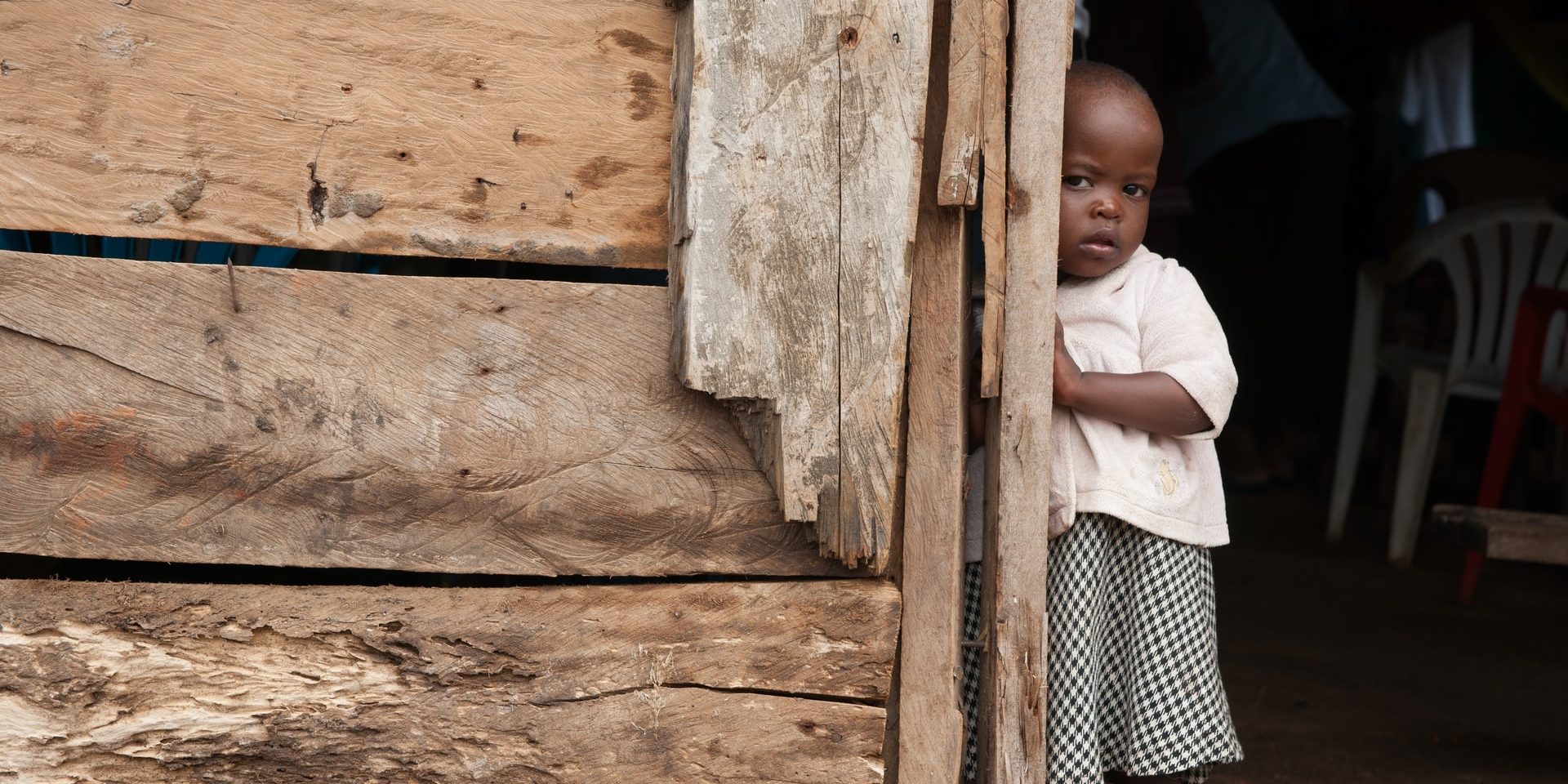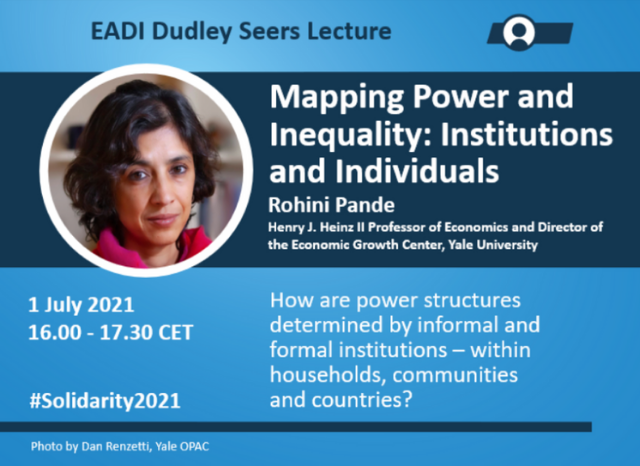
The Dudley Seers Lecture precedes the upcoming EADI/ISS Conference “Solidarity, Peace and Social Justice” and will be held by Rohini Pande, Henry J. Heinz II Professor of Economics and Director of the Economic Growth Center, Yale University.
The Dudley Seers Lecture has been a crucial part of the EADI General Conferences since 2008. Remembering one of the founding members and the first EADI president, this lecture allows a renowned speaker to formally set the tone for the debates at and around the conference.

Speaker
Chair: Arjun Bedi, Professor of Development Economics and Deputy Rector for Research at the International Institute of Social Studies (ISS) of Erasmus University Rotterdam
Welcome and introduction: Henning Melber, EADI President and Extraordinary Professor at the Nordic Africa Institute in Uppsala
Rohini Pande‘s talk will explore how power structures – within households, communities, and countries – are determined by informal and formal institutions. It will analyze how inequality of power and economic inequality interact within these institutions.
Today, the majority of the world’s extreme poor live in lower middle-income countries. In these countries, the persistence of poverty increasingly reflects unequal access to economic opportunities and low levels of redistribution. Within these countries, poverty is increasingly concentrated in rural communities and among ethnic minorities. And, within households, women and girls often receive a lower share of economic resources. This persists even though most of these countries are electoral democracies with universal suffrage. In this talk, Rohini Pande will explore how institutional form impacts the well-being of the poor and vulnerable when patterns of economic growth do not directly provide these groups adequate economic resources. She will focus on two institutions – the family and the state.
Photo by bill wegener on Unsplash